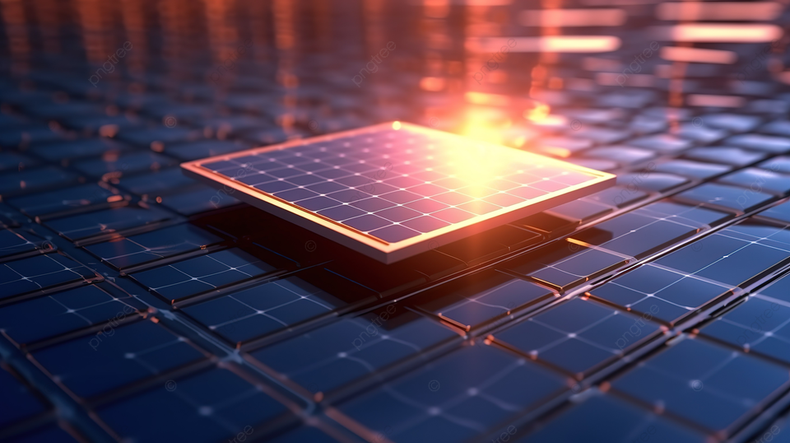Solar energy has emerged as one of the most promising renewable energy sources, offering a clean and sustainable way to meet our ever-increasing energy demands. As the adoption of solar power systems continues to grow, it's essential to understand the critical components that make these systems function effectively. One such component is the solar inverter, a vital piece of equipment that plays a crucial role in converting the direct current (DC) electricity produced by solar panels into alternating current (AC) power, which is the standard form of electricity used in most homes and businesses.
Understanding Solar Inverters
A solar inverter is an electronic device that takes the DC power generated by solar panels and converts it into AC power that can be used to run household appliances, lights, and other electrical equipment. This conversion process is necessary because solar panels produce DC electricity, while most electrical devices and the grid operate on AC electricity.
There are two main types of solar inverters: string inverters and microinverters.
String Inverters:
String inverters are the most common type of inverter used in residential and commercial solar systems. They are typically installed centrally and connected to multiple solar panels wired in series, known as a "string." The string inverter converts the combined DC output from all the solar panels in the string into AC electricity.
Microinverters:
Microinverters, on the other hand, are installed individually on each solar panel. Instead of converting the combined output of multiple panels, each microinverter converts the DC output of its corresponding panel into AC electricity. This design allows for greater flexibility and optimization, as each panel can be monitored and controlled independently.
The Importance of Solar Inverters
Solar inverters play a crucial role in the overall performance and efficiency of a solar electric system. Here are some key reasons why solar inverters are essential:
- Power Conversion: As mentioned earlier, solar inverters convert the DC electricity produced by solar panels into AC electricity, which is the standard form of electricity used in homes and businesses. Without an inverter, the solar-generated electricity would be unusable for most applications.
- Maximum Power Point Tracking (MPPT): Many solar inverters incorporate Maximum Power Point Tracking (MPPT) technology, which ensures that the solar panels operate at their maximum efficiency by adjusting the electrical operating point to optimize power output. This feature helps to maximize the energy output of the solar system.
- Safety and Protection: To protect the solar system and its components from potential hazards. These features include overvoltage protection, overcurrent protection, and ground fault protection, which help to prevent electrical shocks, fires, and other safety issues.
Choosing the Right Solar Inverter
When selecting a solar inverter for your solar electric system, there are several factors to consider:
- System Size: The size of your solar system will determine the inverter capacity required. It's essential to choose an inverter with a capacity that matches or slightly exceeds the total output of your solar panels.
- Inverter Type: As mentioned earlier, you can choose between string inverters and microinverters, depending on your system requirements and preferences.
- Efficiency: Look for inverters with high efficiency ratings, as this will ensure optimal energy conversion and minimize energy losses.
The Future of Solar Inverters
As solar technology continues to evolve, solar inverters are also experiencing significant advancements. Some of the emerging trends and developments in the solar inverter industry include:
- Increased Integration: Solar inverters are increasingly integrated with energy storage systems, allowing for seamless management of solar energy generation, storage, and consumption.
- Smart Grid Integration: Advanced inverters are being designed to facilitate better integration with smart grid technologies, enabling two-way communication and improved grid stability.
- Higher Efficiency: Manufacturers are continuously working to improve the efficiency of solar inverters, with some models achieving efficiency ratings of up to 98%.
Waaree RTL, a subsidiary of the renowned Waaree Group, is at the forefront of solar inverter technology in India. With a strong commitment to innovation and quality, Waaree RTL offers a comprehensive range of cutting-edge solar inverters designed to meet the diverse needs of the Indian solar market. From high-efficiency string inverters to advanced microinverter solutions, Waaree RTL's products are engineered to deliver exceptional performance, reliability, and value. With a focus on customer satisfaction and after-sales support, Waaree RTL strives to be a trusted partner in India's transition towards a sustainable and renewable energy future.
In conclusion, solar inverters play a vital role in the successful operation of solar electric systems. By converting the DC electricity produced by solar panels into usable AC electricity, these devices enable the seamless integration of solar energy into our homes and businesses. As the demand for renewable energy continues to rise, the importance of efficient and reliable solar inverters will only increase, driving further advancements in this critical technology.

